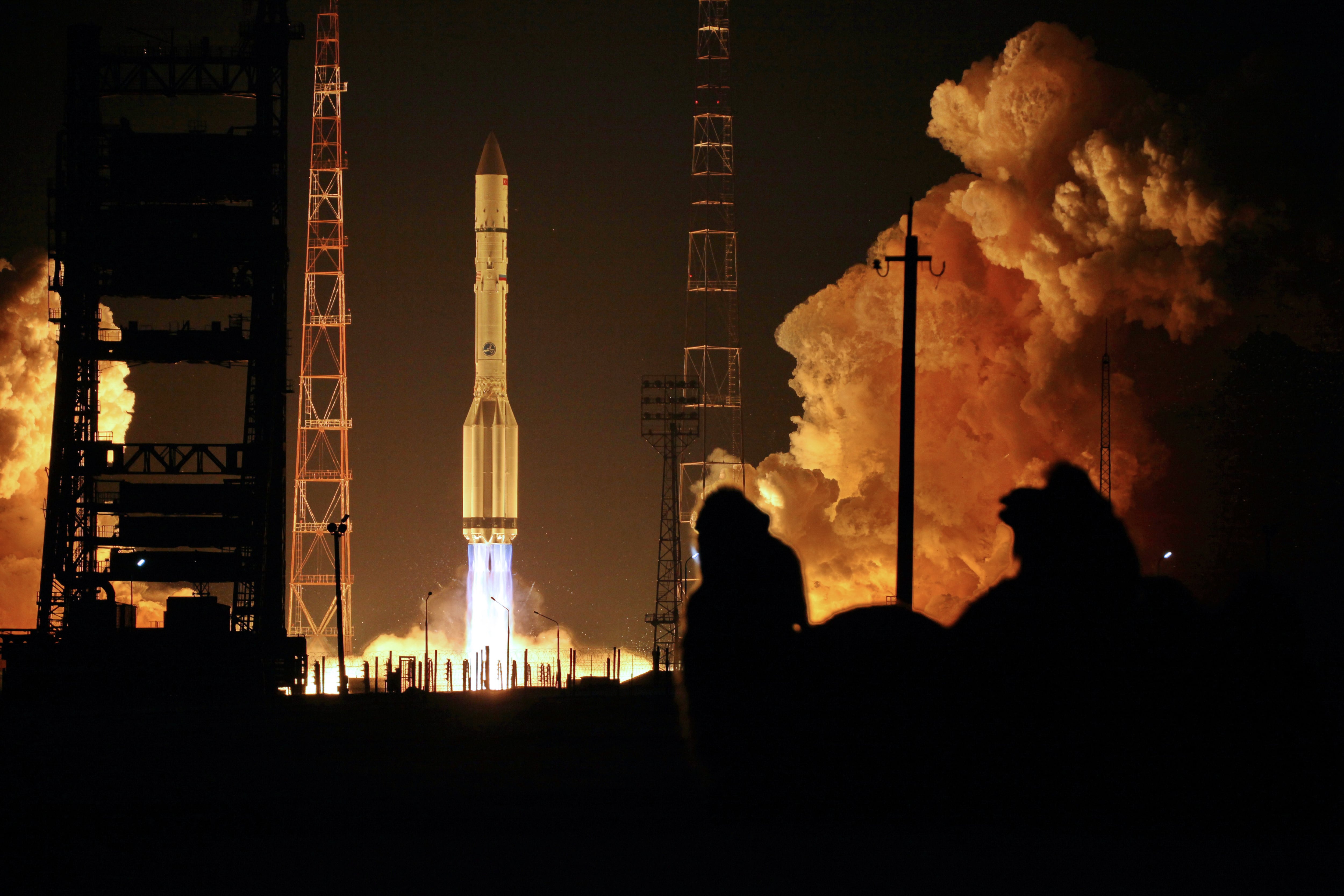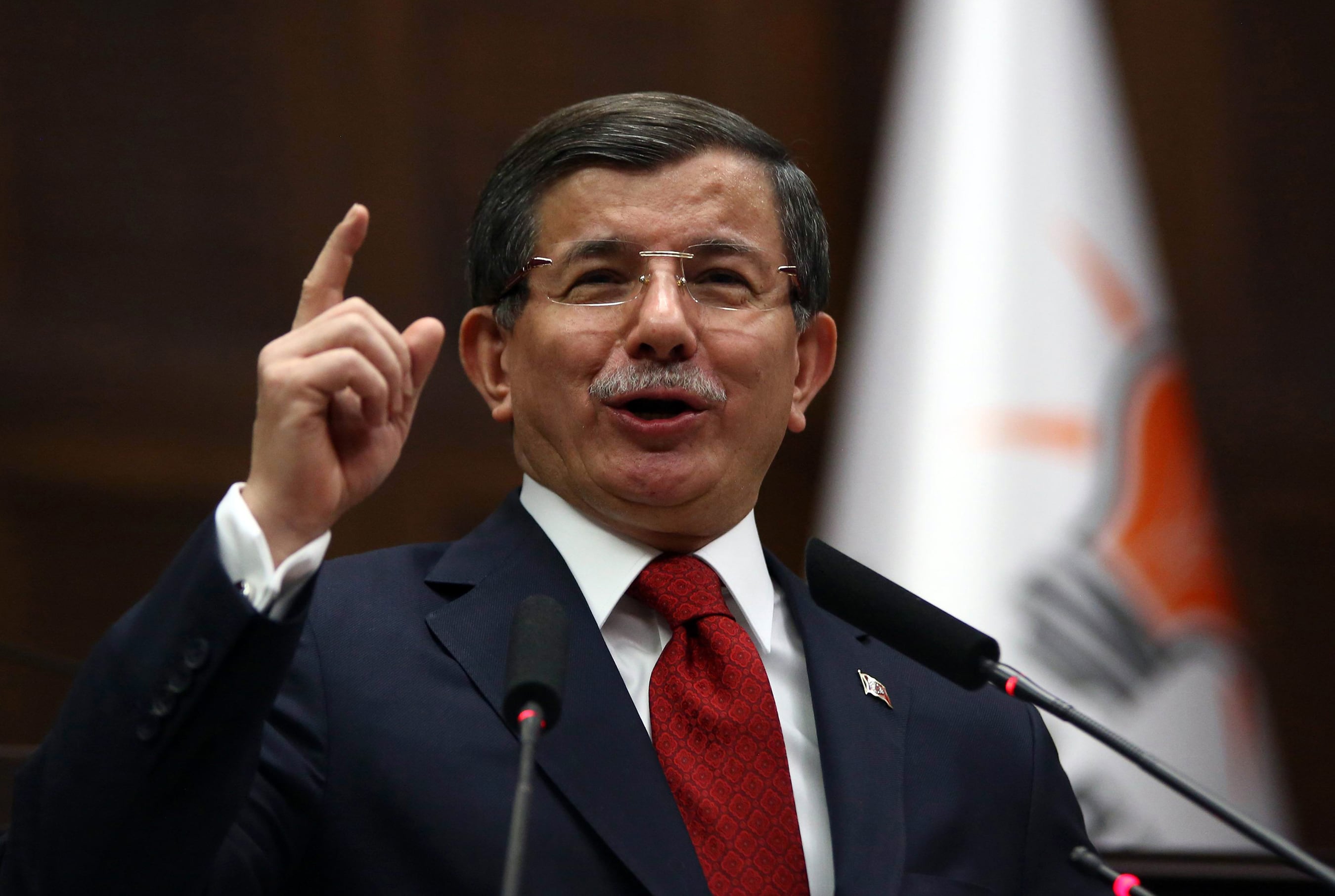ANKARA, Turkey — Turkey has geared up its satellite programs as it consecutively signed new deals with one European and one U.S. aerospace concern.
Turksat, Turkey’s state-run satellite operator, signed on Nov. 9 a contract with Airbus Defence and Space for two new-generation communications satellites, Turksat 5A and Turksat 5B.
Both satellites are based on the latest electric orbit-raising version of Airbus’ Eurostar E3000 platform, which uses electric propulsion for in-orbit raising and station-keeping.
“We are very pleased to welcome Türksat as a new Eurostar customer for the most powerful satellites of their fleet. We were the first to demonstrate full electric propulsion technology for satellites of this size and capacity,” said Nicolas Chamussy, head of space systems at Airbus.
Turksat 5A is a broadcast satellite that will operate in Ku-band in geostationary orbit, covering Turkey, the Middle East, Europe, North Africa and South Africa. The spacecraft will have a launch mass of 3,500 kilograms and an electrical power of 12 kW. It is planned for in-orbit delivery in 2020.
RELATED

Turksat 5B is a broadband satellite that will operate in Ku- and Ka-bands. Its high-throughput satellite payload will provide more than 50 gigabytes per second of capacity over a wide coverage including Turkey, the Middle East and large regions of Africa. The spacecraft will have a launch mass of 4,500 kilograms and an electrical power of 15 kW. It is planned for in-orbit delivery in 2021.
The satellites will be built by Airbus in its U.K. and French facilities. Both satellites are planned for a service lifetime largely in excess of 15 years. Turksat 5A and Turksat 5B are the 57th and 58th Eurostar E3000 satellites ordered, and the 7th and 8th in the Eurostar E3000e version, respectively.
Turksat provides voice, data, internet, TV and radio broadcasting services through its satellites, covering a geographical area extending from Europe to Asia.
Also on Nov. 9, Turkey’s minister of transport, maritime affairs and communications, Ahmet Arslan, said the Turksat 5A and Turksat 5B satellites will be launched by U.S.-based firm SpaceX.
“Our friends decided to launch our satellites with the Falcon 9 rockets of Airbus’ subcontractor, SpaceX,” Arslan said.
Turksat officials say the contract to build and launch satellites will be worth about $500 million. For those two satellites, the local contractors are Aselsan and Turkish Aerospace Industries, or TAI. The local satellite, 6B, will cost Turkey 545 million liras (U.S. $141 million), according to officials.
In October the Turkish government chose Airbus to build the planned satellites.
Elon Musk, chief executive of American electric car-maker Tesla and aerospace company SpaceX, met Turkish President Recep Tayyip Erdogan in Ankara on Nov. 8 to discuss cooperation between Tesla, SpaceX and Turkish firms.
SpaceX plans a manned mission to Mars by 2024 and a rocket capable of carrying passengers from one continent to another in less than an hour.
Turkey in recent years has heavily invested in satellite capabilities. In December it launched Gokturk-1, a new military satellite that is “20 percent Turkish” and will help the country in its anti-terrorism efforts.
The Gokturk-1 is a high-resolution, optical Earth-observation satellite for civilian and military applications. It can scan high-resolution images (up to 0.8 meters) and features an on-board X-band digital imaging system to handle data compression, storage and downloading.
Security officials say the Gokturk-1 would be widely used in Turkey’s fight against the Kurdistan Workers’ Party, a Kurdish insurgency group also known as PKK who has been designated as a terrorist organization by Turkey, the United States and the European Union. The fighting with the PKK has claimed nearly 40,000 lives since 1984 when the group launched a military offensive for a Kurdish homeland.
Having already spent more than $1 billion on satellite programs, Ankara wants to “nationalize” the satellite business. The Turkish government aims to build the first fully indigenous Turkish satellite by 2019. The country wants to invest more on “software, design and platform.”
Key local players in the ambitious satellite programs are military electronics specialist Aselsan, Turkey’s biggest defense firm; Tubitak Uzay, the state’s scientific research space department; TAI; and CTech, a software company.
Turkey wants to be operating a fleet of 10 satellites by 2023.
In 2015, TAI launched a $112 million Space Systems, Integration and Test Center where more than one satellite of up to 5 tons can be assembled, integrated and tested.
The Turkish government also is planning to launch its own space agency.
RELATED

Burak Ege Bekdil was the Turkey correspondent for Defense News.








